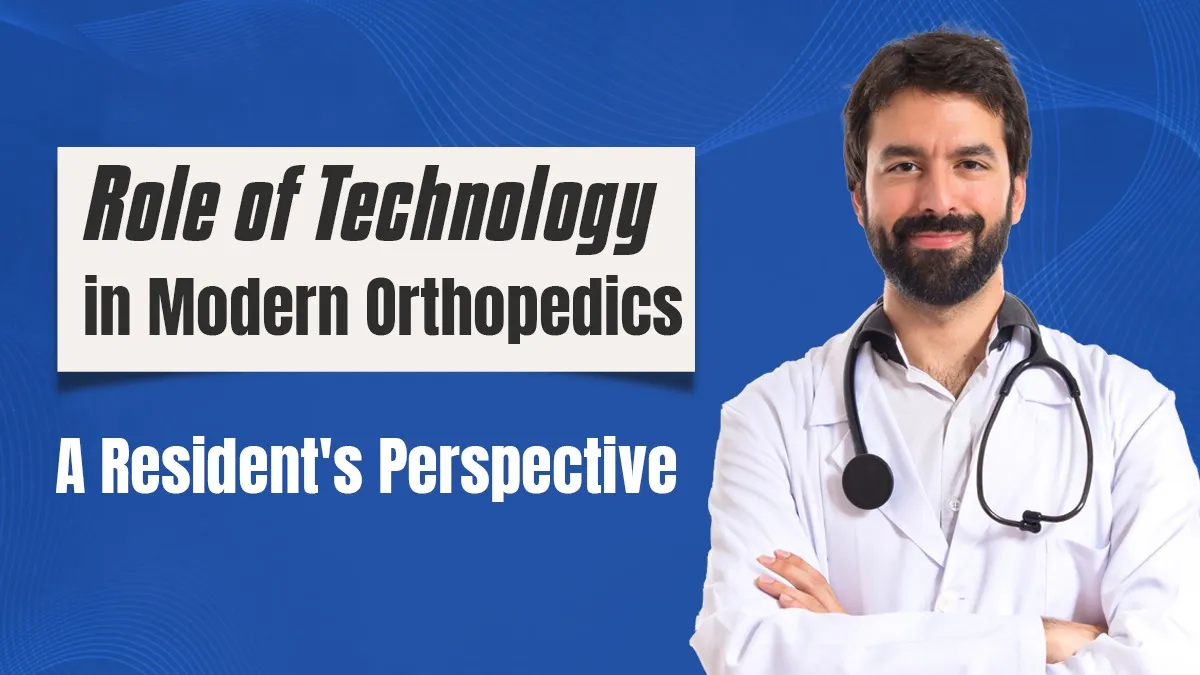Estimated reading time: 3 minutes
Technology has basically transformed the medical field, and is, at present, doing the same with orthopedic surgery. Advanced robotic surgery techniques as well as the use of artificial intelligence (AI) are transforming both residency education and orthopedic practice.
Transforming Orthopedic Surgery with Robotics and AI
In the last few years, Robotic surgery has emerged as a game changer in orthopedic surgical procedures. It provides precision and control that are unmatched by other traditional systems, allowing orthopedic surgeons to do highly invasive complex surgeries. This will result not only in better patient outcomes but also increase the learning experience for the orthopedics surgery residents. Among other benefits, the learning experience of orthopedics surgery residents would be improved with their hands-on experience in robotic-assisted surgeries enabling them to quickly adopt new techniques that are literally emerging as the new standard of care.
Artificial intelligence is another field that is getting interconnected with orthopedic surgery. Such AI-based systems can process the details of the patient, predict the likely outcomes, and even enable surgeons to make active on-the-spot decisions while conducting an orthopedic surgical procedure. Orthopedic surgery residency enhances the skills of the graduates to enhance the diagnostic skills using machine learning algorithms and also making the surgical experience better. An overall meaning for orthopedic education is moving towards more data-driven, personal care, wherein residents can understand how to apply AI tools in day-to-day practice.
Improving Orthopedic Surgery Residency Medical Education
Technologies have much to offer in terms of educational benefits for orthopedics surgery residents. At the fore of medical education are virtual reality and simulation-based training. These enable the practice of complex procedures through risk-free mediums, thus improving the skills of residents even before they enter the operating room.
Simulation-based learning is more than helpful in masterful orthopedic surgery residency programs, which require hands-on experience for many techniques employed during the procedure.
Medical instrumentation and diagnostic tools, embracing AI, yet again widen the learning curve for residents. From AI-enabled imaging technologies to patient care predictive analytics, the futuristic tools that today an orthopedic surgeon possesses are unimaginable and unthought-of even a few years ago. These tools result not just in better outcomes for patients but also revolutionize residents’ learning experience, as residents can now have real-time insights regarding how their patients will be treated and surgery planned.
How is Conceptual Orthopedics setting the trend?
Conceptual orthopedics is the sub-platform of eConceptual which offers interactive lectures, free lectures, clinical cases and presentations, an exclusive mentorship program and many more. In the upcoming days Conceptual Orthopedics organising the first ever “Core to C.O.R.A.” program, the three-day intensive robotics course dedicated to advanced arthroplasty techniques. Designed and tailored to deliver cutting-edge skills in robotic-assisted joint replacement surgeries to orthopedic professionals, the entire program of the “Core to C.O.R.A.” integrates approaches from both core principles and further new advancements in arthroplasty.
Conclusion:
The fusion of robotic surgery, artificial intelligence, and other technological advancements is undeniably transforming orthopedics surgery. Such innovations in orthopedic surgery present an excellent opportunity for orthopedic surgery residents to engage with not only new but also transformative educational and clinical practices. With orthopedic surgery education changing, the future orthopedic surgeon will be better equipped to head the charge in a fast-changing medical landscape, leveraging technology to provide better patient care.

